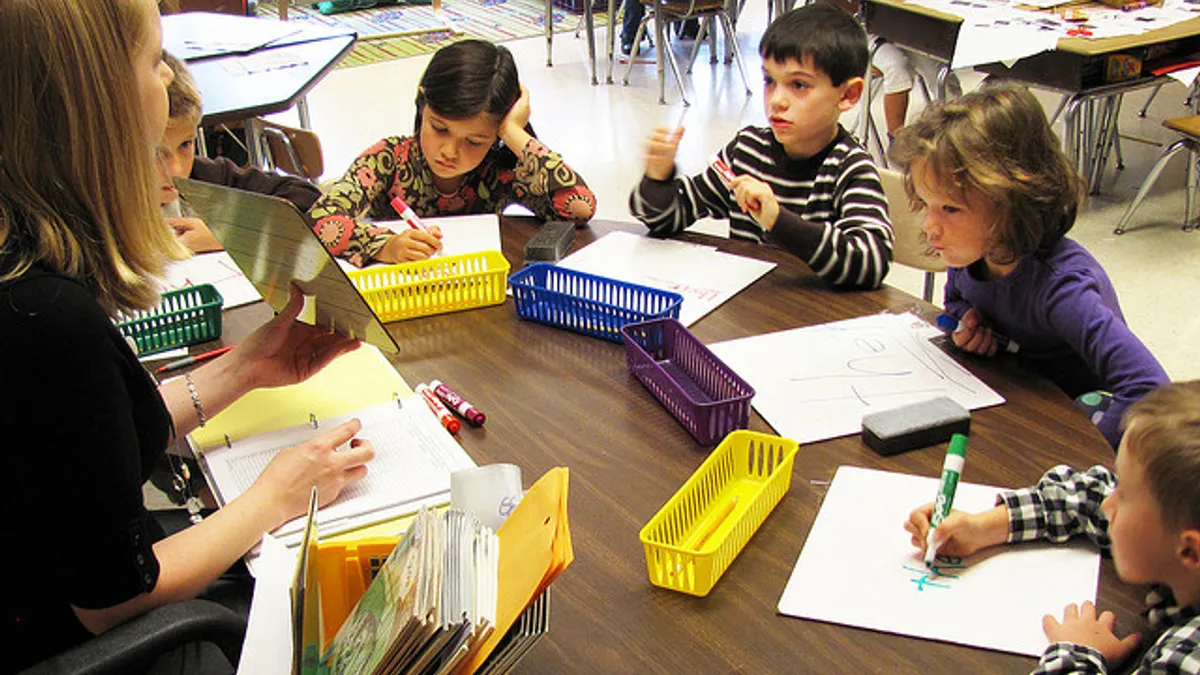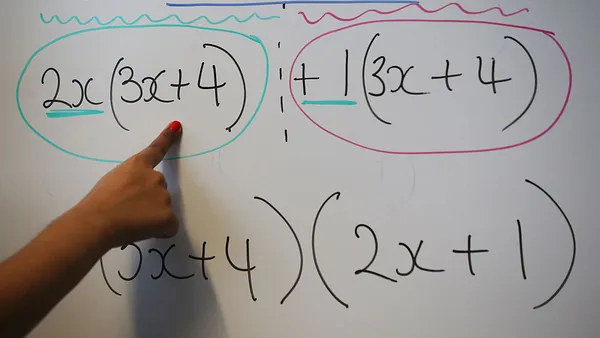Dive Brief:
- Emily Murphy, a project work advisor for Pagosa Peak Open School in Colorado, details for Edutopia the lessons educators learned when an elementary school student project to install trash cans along a community bike path won the support from the town council, but was met with little excitement from the very students who presented the request.
- Students saw the responses they got from the town council and believed they had not been taken seriously, even though the adults voted yes, Murphy writes, adding that the students also believed the adults had treated them with “condescension.” She realized she had not prepared them well enough for speaking with adults.
- In the students' next project, which focused on food security, they hosted a community meal and even grew food that they donated, and Murphy now makes sure students are prepared for the adults they will meet and work with so they know what to expect and how to handle the experience.
Dive Insight:
Even the best plans in education can stumble and fall apart. Ideally all curricular plans will work out, but reality is that lessons may not always bring about a desired result, and curriculum can sometimes fail to ignite student learning or bring about any kind of measurable achievement.
Educators don’t want students to fear failure. Rather, they should ideally come to view that experience as one where they can learn and grow. Thus, administrators and educators must model this very behavior and also be willing and able to make changes when something is not going to plan.
To avoid bumps in the road and also be ready to pivot when changes are needed, administrators must make sure faculty are constantly supported with ongoing professional development. Additionally, scheduling adequate time during the day — extended time, ideally — through block scheduling, for example, can ensure educators have the opportunity to assess how their teaching is working and how to shift when they see students stumbling.
Educators can often be a great source for curriculum designers to tap when looking for new and innovative learning methods, as Education Dive recently reported. One way to include their voice is to implement teacher advisory counsels, where teachers are invited to have regular meetings, even weekly, with administrators. There, new ideas can be brought forward and considered on an informal yet consistent basis.
Learning is ideally a process, not a pass-or-fail experience. When students try something and it doesn’t work, that moment can teach how to read a situation, adapt and pivot without fear. Modeling that behavior is key to developing that understanding.







 Dive Awards
Dive Awards





